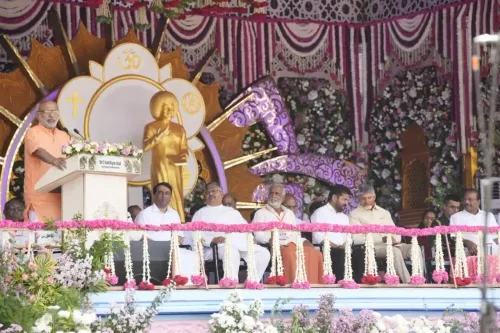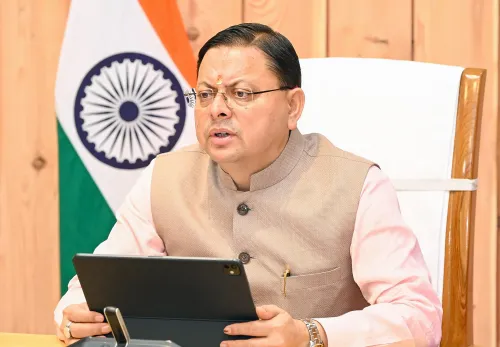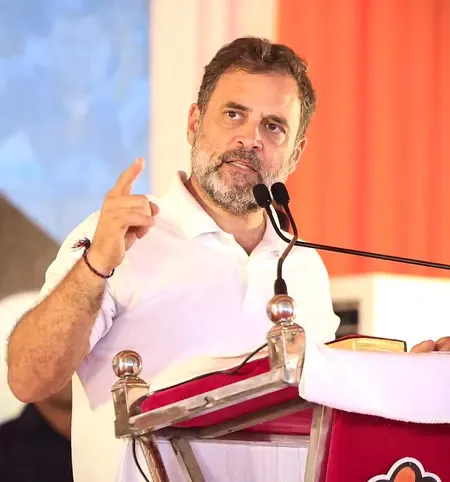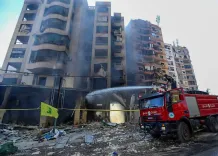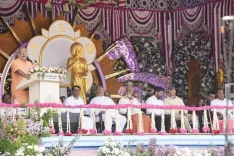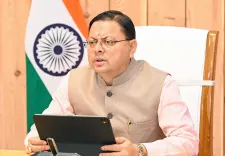Has the Fight Against Emergency Kept Democracy Alive?
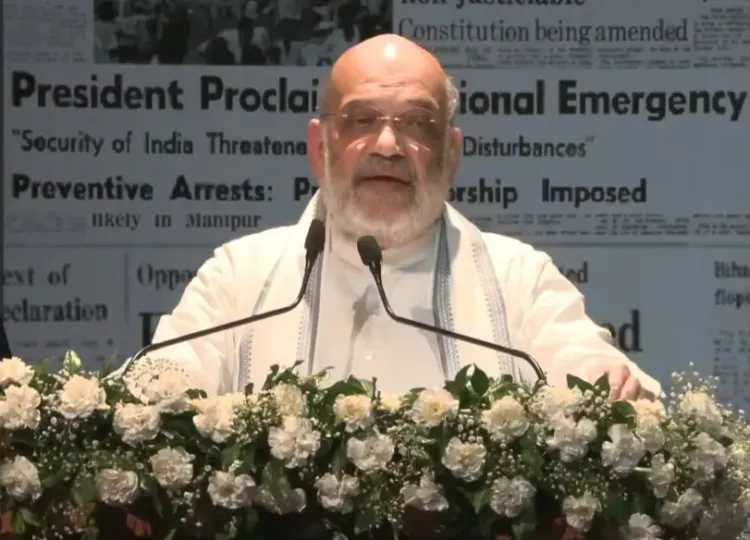
Synopsis
Key Takeaways
- Amit Shah emphasizes the importance of remembering the Emergency to protect democracy.
- The Emergency caused significant oppression and civil rights violations.
- Democracy in India was restored only after 21 months of authoritarian rule.
- Key political figures were imprisoned, highlighting the extent of the crackdown.
- Reflecting on history helps prevent the resurgence of dictatorial governance.
New Delhi, June 24 (NationPress) The struggle against the Emergency has preserved the essence of Indian democracy, asserted Union Home Minister Amit Shah on Tuesday. He emphasized the importance of keeping the memories of the oppressive era imposed by the late Prime Minister Indira Gandhi and her 'Kitchen Cabinet' alive.
During the 'Aapatkaal Ke 50 Saal' event, Amit Shah stated, "Though it has been 50 years, the pain in the hearts of millions of Indians caused by the Congress's tyranny during the Emergency is still as poignant as it was back then."
Without directly naming him, Shah criticized the Leader of the Opposition in Lok Sabha, Rahul Gandhi, questioning: “What authority do you have to speak about the Constitution? What actions did your party take during the Emergency? Was Parliament consulted?”
He reminded the audience that this was the same party that had become a destroyer of the Constitution.
According to him, the country transformed into a prison during the Emergency, with numerous individuals incarcerated without trial or reason.
He highlighted the discontent among the judiciary, executive, legislature, media, and artists, all of whom were silenced.
Prominent leaders like George Fernandes and Acharya Kriplani were imprisoned without any justification, he noted.
Some might question the value of recalling events from 50 years ago, but Shah insists that such reflections are crucial to prevent the resurgence of similar dark periods.
“It’s vital to remember an event that shook the foundations of our democracy and a dictatorial mindset, to ensure that their supporters do not rise again,” he remarked.
The Emergency was widely detested by the public but praised solely by the then dictator and her inner circle, he added, indirectly referencing Indira Gandhi, who imposed the Emergency on June 25, 1975.
“It took 21 months for democracy to be reinstated post-Emergency. Thus, I refer to the night of June 24, 1975, as the longest night in our nation’s history, culminating with the lifting of the Emergency,” he stated.
The Constitution, which upholds civil liberties and judicial practices, crafted over two years with extensive debate, was dismissed in a mere minute by the declaration of the 'Kitchen Cabinet', he remarked.
The multi-party system of a democratic nation was sacrificed on the altar of a dictator's arrogance, he claimed.
“Picture being transformed from a citizen to a dictator's submissive overnight. Envision a journalist labeled as anti-national in an instant. Think about a student, the future of this nation, being viewed as a threat to the establishment,” Amit Shah urged.
Even social activists were imprisoned for being perceived as threats, with a staggering 1.1 lakh individuals detained.


